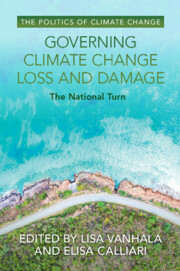Acknowledgments
This book is the result of a truly cooperative effort and we are extremely grateful to all the people who invested their time, energy, and enthusiasm in this project. A first thanks goes to all of the book’s contributors: Selam Kidane Abebe, Md Fahad Hossain, Asaye Ketema, Monserrat Madariaga Gómez de Cuenca, Nusrat Naushin, Michai Robertson, Adelle Thomas, Douwe van Schie, and Latonya Williams. They helped us gain an in-depth understanding of the local political, social, and cultural context of our case studies through the access, expertise, and constructive challenge they offered. We learned a tremendous amount working alongside them and it was a joy to work collaboratively in unpacking local dynamics and complexities. We also would like to thank the more than seventy research participants across the globe who set aside their time to be interviewed and to share their knowledge and insights with us.
For their support and/or helpful comments and discussion at various stages of research and writing, we would like to thank our colleagues. This includes the Climate Change Loss and Damage (CCLAD) team at University College London: Friederike Hartz, Angelica Johansson, Monserrat Madariaga Gómez de Cuenca, Michai Robertson, and Noah Walker-Crawford. Neil Adger, Lucy Barnes, Emily Boyd, Frances Butler, Simon Chin-Yee, Jared Finnegan, Fergus Green, Stephen Humphreys, Johanna Nalau, Julie-Anne Richards, Erin Roberts, Olivia Serdeczny, Joana Setzer, Adelle Thomas, and Zinta Zommers all provided feedback and/or encouragement in different forms over the course of this project and we are grateful to them. To Monica Burgess and Ajay Patel, who played important roles in helping us administer this complex project from submission of the research grant to hiring of research assistants around the world to helping us turn the book into one that can be accessed widely, we are enormously appreciative. Corin Throsby supported us in the end stages of our writing process as a development editor, and the book is much stronger, more coherent, and clearer as a result of her engagement.
This kind of global research project is not possible without substantial levels of funding. This research would not have been possible without the generous support of the European Research Council under the European Union’s Horizon 2020 Research and Innovation Programme [Grant Number 755753 – CCLAD – ERC-2017-STG]. This kind of funding allows for paradigm-shifting ideas to emerge, be explored, and be widely disseminated, and we are grateful for the opportunities it provided to us and the wider team.
We worked with a number of research assistants, including D’Arcy Carlson, Ineza Umuhoza Grace, Vega Osman Bisschop, and Neekhil Prasad, and we want to acknowledge their tireless work “behind the scenes” which stretched over the five years it took to complete the research project and bring this book to light. Friederike Hartz has provided steadfast research support and has contributed in significant ways to the book.
Parts of this book were published in earlier articles though they have been substantially revised. Parts of Chapter 3 were published in “The ‘national turn’ in climate change loss and damage governance research: Constructing the L&D policy landscape in Tuvalu.” Climate Policy, 22(2), 2022, 184–197, and parts of Chapter 4 were published in “The knowledge politics of climate change loss and damage across scales of governance.” Environmental Politics, 30(1–2), 2021, 141–160.
Thanks are especially due to the series editor of the Politics of Climate Change Series, Michael Ross, and Editorial Board members Matto Mildenberger, and Leah Stokes who provided feedback and support, as well as Robert Dreesen, Sable Gravesandy, and the rest of the team at Cambridge University Press. We also owe a huge debt to the two anonymous reviewers of the book who provided excellent comments and suggestions which allowed us to greatly improve the quality of our work and enhance our engagement with cutting-edge debates in political science. All of these people believed in our project, assisted us along the way in our publication process, and provided us with encouragement at critical stages.
Finally, our families have been supportive of our research endeavors in a multitude of ways. Lisa would like to thank Sam Abercrombie, Katie Vanhala, and Paula Vanhala for their many forms of encouragement and support over the course of this project. Elisa would like to thank her parents, Enzo and Nadia, for their endless love and support and is sure that her mother would be very proud of this achievement.

